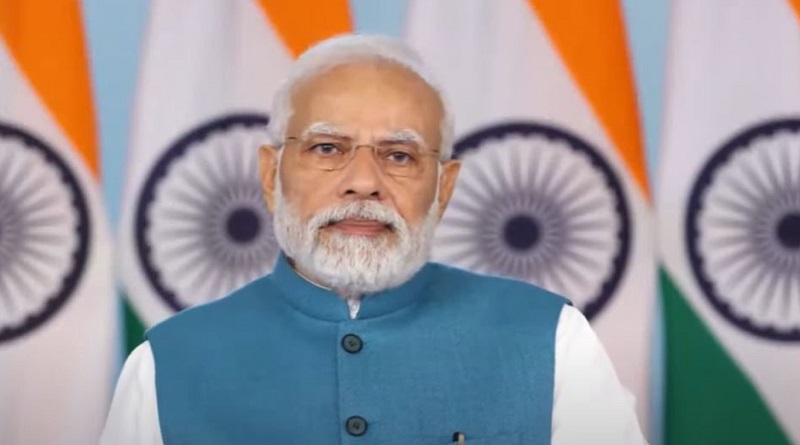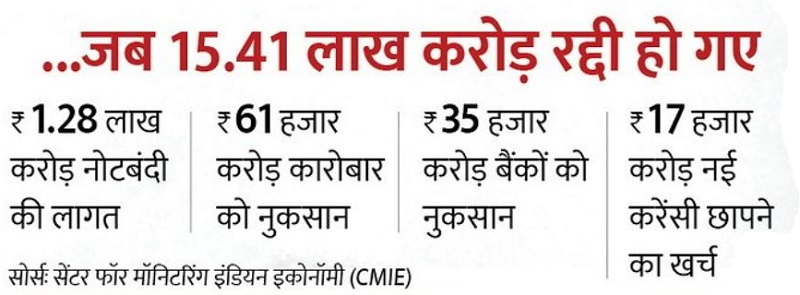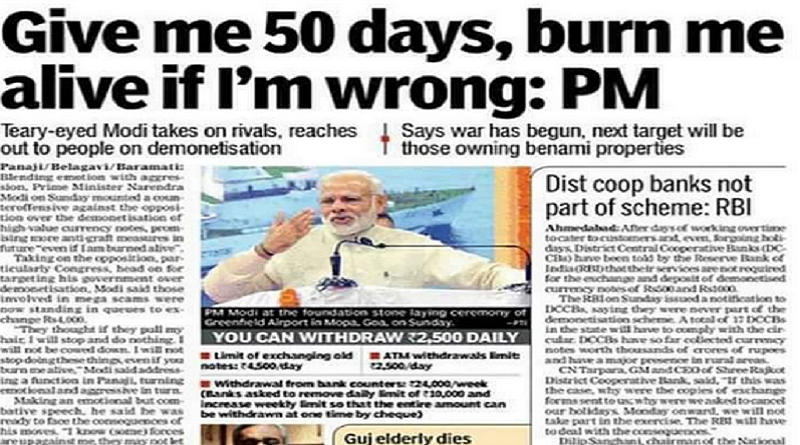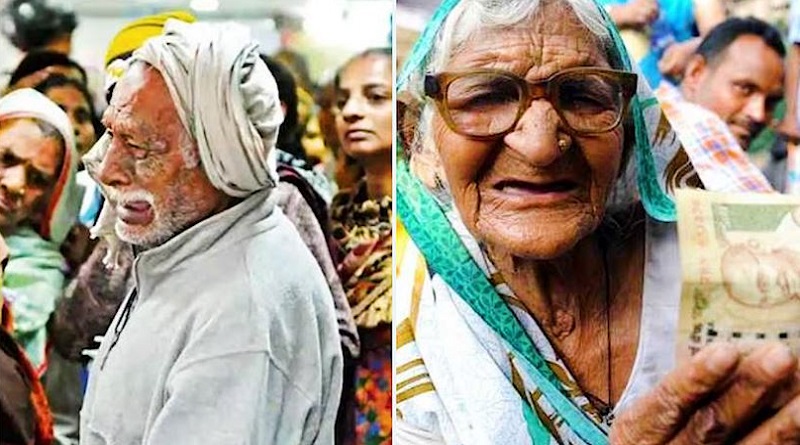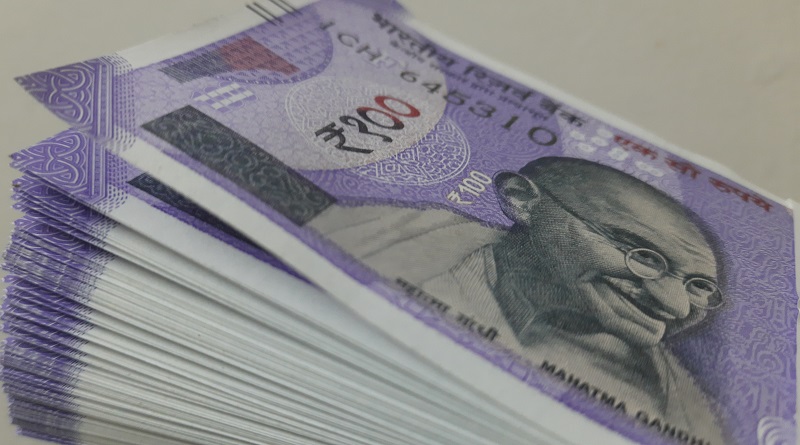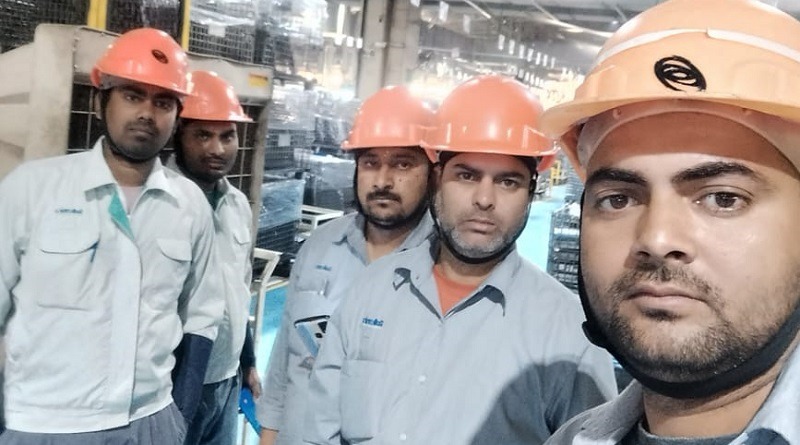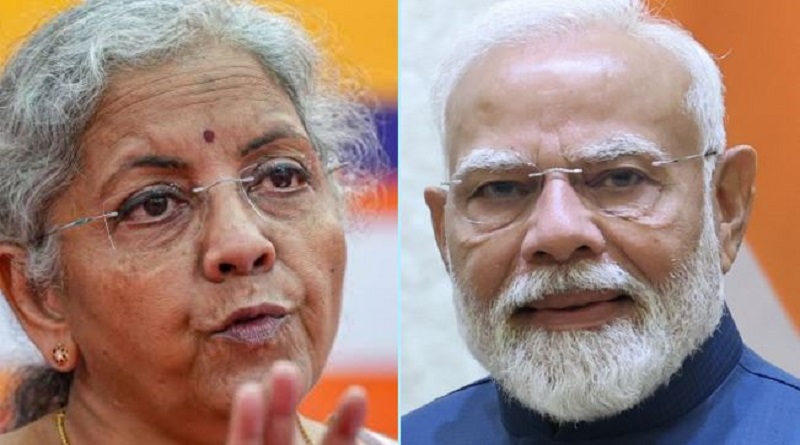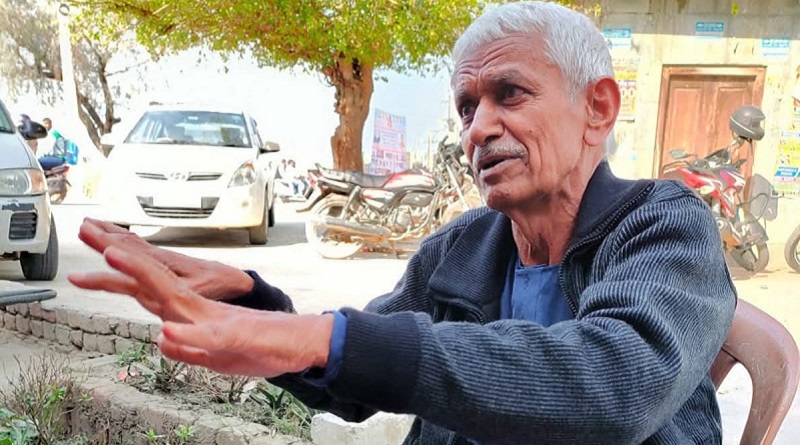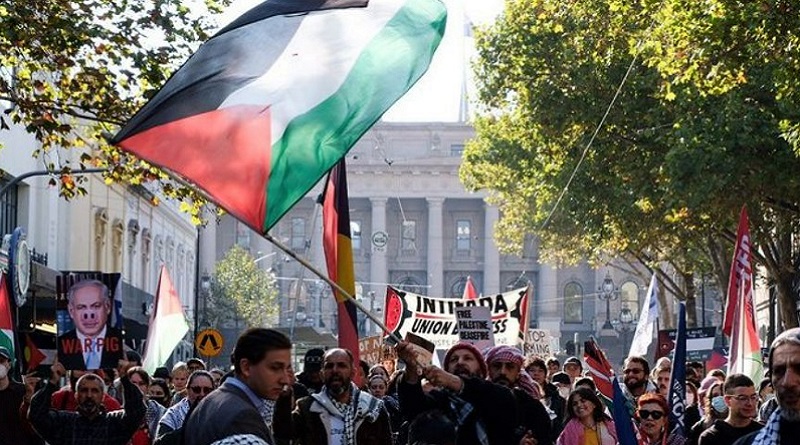Discovering the truth about Demonetisation, edited and censored, or buried deep?
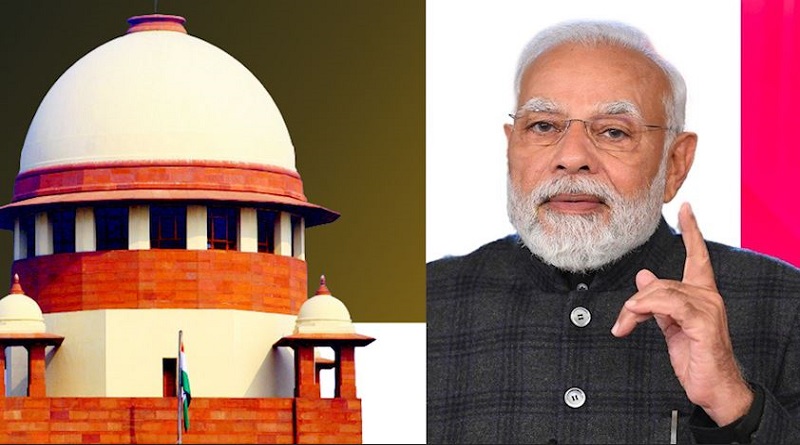
By Krishnamurthy. V
When the sun will shine only on free men who know no other master but their reason; when tyrants and slaves, priests and their stupid or hypocritical instruments will exist only in works of history or on the stage; and when we shall think of them only . . . to learn how to recognize and so to destroy by force of reason, the first seeds of tyranny and superstition, should they ever dare to reappear amongst us.
-Marquis de Condorcet
Supreme Court’s Verdict on the Demonetization in January 2023: Demonetization Upheld
A bench comprising of five judges heard the masterly arguments by the wisemen of the bar counsel. We could see only the case numbers of the 57 petitions that were filed, as their contents were not available to the public.
Moreover, not all applications were argued by their respective attorneys. Some were already argued in the respective High Courts but were later transferred to the Supreme Court. A stereotypical warning was issued, stating that any issues cannot be mere academic discussions.
Further, it was told that courts cannot sit and pass orders on the Legislative or Executive decisions made by the Prime Minister, who symbolized these first two pillars of our democracy. One man in two roles. It was said that the court cannot intrude on executive powers, unless they are violative of constitutional provisions or if the exercise of powers are ultra vires.
A marathon debate resulted in a 130 pages long order by four judges, with a dissenting, fifth, independent woman judge.
Prasant Bhushan, a brilliant human rights defender and senior lawyer did not appear, of which reason were unknown. Instead, applicants were represented by Mr. Chidambaram and Mr. Divan, the government was represented by Mr. Venkataramani who is the Attorney-General of India, while RBI was represented by one Mr. Gupta.
Arguments made in the Supreme Court
The Attorney-General was firm when he said that the court cannot proceed to pass orders in cases where substantial relief cannot be given; and that this court cannot entertain issues of academic nature.
On the the other hand, Mr. Gupta, the legal counsel for the RBI, said that various measures were taken by RBI to alleviate the genuine grievances of citizens.
The RBI Act of 1934 states that powers cannot be tinkered or ushered by the virtue of article 372(1) of the constitution. It was questioned, whether the government studied the sanctity of the law at the time of issuing the notification for Demonetization.
While issuing the notifications in 2016 had the RBI virtually violated Negotiable Instrument Act of 1881? In that case, is it not a violation of constitutional sanctity?
Demonetization Announcement on 8th November 2016
There was a consolation prize for the victims of this explosion. Sympathetic tears were shed for the millions whose daily life, businesses, and agricultural activities were destroyed, and for those who died in the melee and the turbulence that followed the Prime Minister’s announcement in 2016.
The lives of many of those affected appeared only in special screen shots for sensational dialogues. Even the subsequent petitions against Demonetization made at the Supreme Court were not curative or restorative petitions.
While the damage caused by Demonetization is estimable, this damage cannot be repaired or compensated for. The administration only offered lip sympathies to the victims of Demonetization.
For the fifteen million people who lost jobs; the 1.5 lakh SMSEs and micro-organizations that fell; the millions of small farmers who lost their crops due to the lack of money supply; and the 67 people who died while standing in the queues before some ATM or in the bank halls; there was no compensation of any kind.
In fact all counsels of the petitioners as well as the accused, which included the Central government and the RBI, were happy to neglect the issues of the ordinary Indians. In their glamourous debates within the court halls, all counsels acted unperturbed by the sufferings of the common people due to the Demonetization, and focused their attention to non-issues of the cursed case.
War on legal issues, interpretation of the RBI Act’s provisions, separation of powers, and meaning of terminologies dominated the discussions in the court. Even, the Supreme Court framed issues within their comforts.
There was no clear appellant or any applications claiming for damages. Nor was there a curative petition for restoring the asset losses, or a claim against the arbitrary notification, that resulted in damaging the life of millions as martyr victims.
The part of the losses to ordinary persons and small enterprises figured nowhere.
Issues framed by five-member bench and their short-cut conclusions: A brief analysis
In this section, we discuss, the undiscussed part of this case, from the materials of case.
i. Whether the power available to the Central Government under sub-section (2) of Section 26 of the RBI Act can be restricted to mean that it can be exercised only for “one” or “some” series of bank notes and not “all” series in view of the word “any” appearing before the word “series” in the said subsection, specifically so, when on occasions, the demonetization exercise was done through the plenary legislations?
In the judgement, the notification is justified by concluding that ‘Any’ means ‘All.’ The 20 pages of judgement finally changed the very dictionary meaning.
ii. In the event it is held that the power under subsection (2) of Section 26 of the RBI Act is construed to mean that it can be exercised in respect of “all” series of bank notes, whether the power vested with the Central Government under the said sub-section would amount to conferring excessive delegation and as such, liable to be struck down?
iii. No record shows that the matter of demonetization was being circulated and discussed in the board of the Reserve Bank of India, either before or on 7th Nov. 2016. The minutes were prepared and signed on 15th Nov 2016. Eight directors, constituting a quorum, were available. The minutes were approved on 15th Nov. 2016. Any notification issued in the absence of Board approval is ultra vires under company law.
iv. When, in any issue, proper board notes were not prepared and circulated among the directors of RBI well in advance, how did independent directors approve it on 7th Nov, 2016? Moreover, in this regard, we are not exploring how each of the directors took their one day sitting fees of over Rs.60000.
v. For an argument , if we do accept the SC’s version, that this matter was before the board of the RBI for the past six months, despite then governors denying such agenda papers, we must ask what were the terms of the secrecy?
How were three private corporate heads and few qualified ruling-party members privy to the measure of Demonetization? It would appear that loyalty to corporate chambers, to party men, and to the Shakha are much higher forms of loyalty than the oath of secrecy taken by the board of director. There was no evidence that they did not help their men to be alert.
vi. As to whether the impugned notification dated 8th November 2016 is liable to be struck down on the grounds that the decision-making process is flawed in law? This is the dissent note of the lone judge.
In this regard, the Government’s counsel argued that, “It is claimed that the demonetization is to be struck during odd hours, so that there will be no time for the counterfeit currency holders, black money holders of Rs.1000 and Rs.500 notes, or the terrorists will have no time to exchange and transfer the funds in their hands. It is the contention. It applies to every citizen.” (paraphrased)
On 7th Nov. 2016, the Board of Reserve Bank of India recommended for demonetization. It was announced at odd hours on 8th Nov.2016. Yet where are the culprits and where is that black wealth?
The nation was shocked by the announcement that 86.4% currency notes, which amounted to Rs. 15,44,000 crores were demonetized from circulation. Ironically, a few months later, the Government was shocked that 99.7% of the old currency came back to claim its sanctity.
The PM should have been proud that the shady Indian rich were either unbelievably honest or much more shrewd and genius to carry out frauds that outwit the PM of a nation.
Zero black money was tracked at the time of demonetization. Later, it was available in Rs.2000 denominations in IT raids, and in the form of counterfeit notes in the bags of the dead terrorists.
vii. Huge money remitted in Madhya Pradesh and in Kolkata before demonetisation appeared in news columns. Why were these suspicious money transactions not termed and prosecuted as money laundering? Moreover, current account balances had bloated in the case of many corporates.
Religious institutions had several lakhs of crores of exchanges. Remittance vehicles, instead of ATMs reached the politically powerful men’s godowns.
viii. Government ordered that all banks and government treasuries shall digitally record and submit the quantum of each serial available in their branches and cash chest within that evening. On 9th and 10th Nov 2016, no transactions in ATMs were allowed.
While Rs.4000 per person with Identity Cards was allowed, what happened to other transactions that were vigilantly monitored? Any amount beyond Rs.50000 should have been remitted along with a PAN number.
Any transaction more than Rs.10 lakhs should been reported to the RBI and the IT department. Rs. 15 lakhs crores amount was transacted. Or Rs. 30 lakhs crores were in and out flow.
Banks should have submitted the report, with the names of the clients, and with their PAN numbers.
Reports of cash transactions or the suspicious transaction reports should have registered several hundreds of GBs? Why did the Finance Ministry refuse to track these honourable men?
ix. “There has to be great restraint in matters of economic policy. Court cannot supplant the wisdom of executive with its wisdom,” said Justice BR Gavai, when they placed their verdict in SC. Dissenting the majority judgement, enumerating the disaster it has caused, Justice Nagarathnamma spoke, “The problems associated with demonetization make one wonder whether the central bank had visualised these.”
‘Excessive power’
‘Limiting the depositor’s withdrawal up to Rs.4000 is violative of the constitutional right of the depositors as stated in Art.14, 19 and 21. Her contention was that RBI’s recommendation to effect demonetization should have been done through a law of the parliament and not by a mere notification.
Demonetization of more than one series is ‘excessive power’ exercised by the bank. She said that documents and records submitted by the Centre and the RBI, which included phrases like “As desired by the Central Government”, show that there was “no independent application of mind by the RBI”.
Centre’s desire cannot be arbitrary decision of a PM. It consists of a legislative body. Wherever co-operative banks were asked to stop dealing in currency exchange, the whole rural economy faced shortfall of money for even day to day living.
She recommended to place all the issues to a larger bench of the Supreme Court.
We, as common citizens would like to say that the reasons behind Demonetization were false, and the results were flop.
However the SC confirmed, “Emperor is always right..”
(Krishnamurthy V. is a retired banker from Bangalore and has extensively worked with bank employee unions and other Karnataka based movements. Editorial assistance for publishing his article was given by Riddhi from Workers Unity.)
Subscribe to support Workers Unity – Click Here
(Workers can follow Unity’s Facebook, Twitter and YouTube. Click here to subscribe to the Telegram channel. Download the app for easy and direct reading on mobile.)

